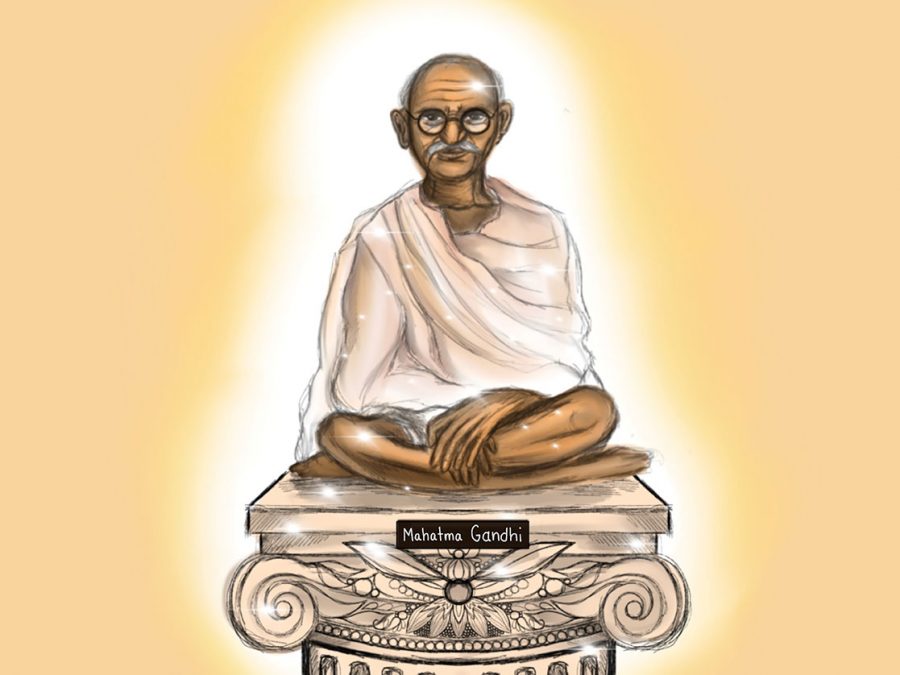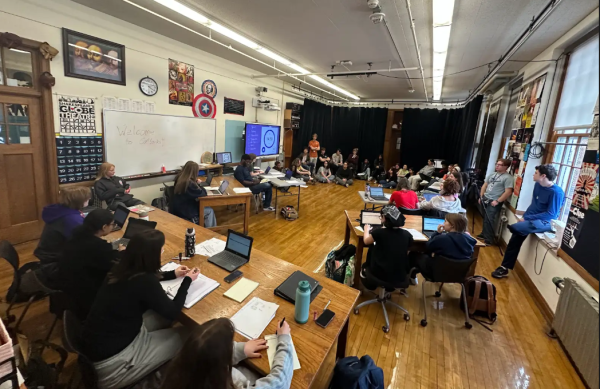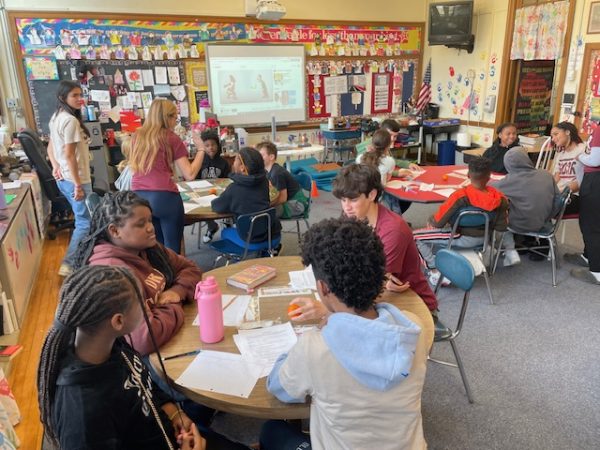Heroes Are Human, Too
We should not oversimplify the lives of historical figures
I am not a fan of Gandhi.
I know this comes as a shock, as Gandhi is synonymous with good, like Einstein with genius.
In history class, we learn of his civil rights efforts in South Africa, his fight to gain independence for India and his crusade for nonviolence. He starved himself to protest the unfair policies of England. He was a constant source of light. But every radiant moon has a rocky dark side.
Gandhi’s dark side is known to few. He embodied purity as a devoted Hindu. While pious and pure in the public’s eye, he abused his power to control the sexual behavior of his followers, according to The Washington Post.
Gandhi ran an ashram with his wife, a place for others to live in a safe, religious community. In order to stay in the ashram, the residents had to follow Gandhi’s rules. Few people had a problem with any of his orders, as no one could disobey the great Mahatma Gandhi. Among the rules were requirements that husbands and wives could not sleep together or engage in any sexual activity, and some of the women were to participate in celibacy experiments with Gandhi.
We learn a simplified view of our world; we don’t explore the nooks and crannies of the ambiguous parts of history. When we learn about the past actions of individuals, we should understand that no issue can be drawn in black and white. The complexities of humanity cannot be explained by labeling people with a “good” or “bad” name tag. We have to determine the weight of their actions ourselves.
Aristotle, for example, is arguably the most respected mind in philosophy and logic. Though I applaud his valuable contribution, I can’t accept his statement that men are “better and more divine” than women.
Do others agree when he asserts that wives have a duty alike slavery to their husbands? I hope not.
None of my teachers have ever raised Aristotle’s deplorable view of women, so I never saw this counterargument to his brilliance. Knowing this information makes me question how much praise he deserves, and how much of his philosophy I should adhere to. It should pose this question to all who study his life.
The problem with Gandhi and Aristotle is bigger than our history classes. It’s a problem that American education needs to face.
Ohio education standards for American history include no mention of the racism that our country was founded on. Our founding fathers are hypocrites in the worst sense of the word; they secured freedom from their British oppressors while denying others their own.
What will we Americans learn 100 years from now about those we hate or admire today? Will Donald Trump’s hateful rhetoric about African countries be part of the the curriculum, or will he be known as the hero of the working class? Will Robert Mueller be known as the servant of democracy, or its adversary?
We act as though America is the face of freedom, the lighthouse for liberty across the globe. Yet it hasn’t been 100 years since the first American woman voted. African Americans and Hispanics constitute 32 percent of the American population, but they comprise 56 percent of incarcerated Americans.
Women, African Americans, Native Americans, and others still suffer from America’s history of oppression. We deny our full history and we turn a cheek to its evils. By ignoring them, we are not just obscuring the whole truth, but we are aggravating the problems facing America today.
There are ways to fix this, to be an informed citizen of the globe. Keeping up with honest news sources such as The New York Times or The Wall Street Journal allows you to read balanced accounts of events with facts not colored by an ulterior motive.
I chose to explore Gandhi because my history teacher mentioned his misconduct during our study, thus offering a broader view of a revered historical figure.
It is our duty to go beyond what we are told to learn or to teach. Our curiosity should drive us to find the whole truth.
A version of this article appears in print on pages 30-31 of Volume 89, Issue I, published Dec. 21, 2018.
Comment using your Facebook, Yahoo, AOL or Hotmail account









